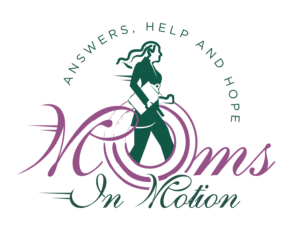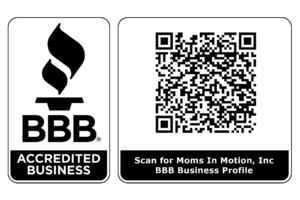Consumer-Directed Waiver Services
Overview
Waiver services are a range of community support services offered to people as an alternative to institutionalization. They are covered only for people who have been determined eligible for a Medicaid waiver and who also require the level of care provided in a facility. Services covered through the Consumer-DirectedServices where the person using them is allowed to select, hire, fire, and train their particular caregiver(s). More model of care are personal care, respiteShort-term care for a child or adult that allows the primary caregiver relief. More, and companionA waiver-paid service focused on presence of a caregiver for safety, but less on hands on caregiving. More.
Level of care (LOC) means the specification of the minimum amount of assistance a person requires in order to receive services in an institutional setting or to receive waiver services. These services play a critical role in the delay or avoidance of the person’s placement in a facility, but are not covered while a person is an inpatient of any of the following:
- Hospital
- Nursing facility (NF)
- Intermediate care facilityA long term care facility that provides nursing and supportive care to residents on a non-continuous skilled nursing care basis, under a physician’s direction. More for people with intellectual disabilitiesThe Americans with Disabilities Act (ADA) defines a person with a disability as a person who has a physical or mental impairment that substantially limits one or more major life activity. This includes people who have a record of such an impairment, even if they do not currently have a disability. It also includes people who do not have a disability but are regarded as having a disability. The ADA also makes it unlawful to discriminate against a person based on that person’s association with a person with a disability. More (ICF/IID)
- Inpatient rehabilitation
- Facility rehabilitation hospitals
- Assisted living facility
- Long-stay hospitals
- Skilled or intermediate care nursing facilities
- General acute care hospitals
- Adult foster homes
- Group homeHousing arrangement where 3-7 people with disabilities live, staffed 24 hours a day, 7 days a week. Homes usually have support staff that rotate around the clock on shifts. More
Waiver Description & Legal Authority
- A person can have Consumer-Directed and Agency-Directed services, however, these services cannot be simultaneously provided but may be provided sequentially or alternately from each other.
- A person cannot be simultaneously enrolled in more than one waiver program but may be listed on the waiting list for another waiver program as long as criteria are met for both waiver programs.
- DMAS payment for services under a waiver shall be considered payment in full and no balance billing by the provider to the person, family/caregiver, Employer of Record (EOR), or any other family member of the person shall be permitted.
- Additional voluntary payments or gifts from family members shall not be accepted by providers of services.
- Waiver services shall not be authorized if another entity is required to provide the services, (e.g., schools, insurance) because these waiver services shall not duplicate payment for services available through other programs or funding streams.
Covered Services through Consumer-Direction
Personal Care
Personal care services are a range of support services that includes assistance with ADLs or IADLs, access to the community, self-administration of medication or other medical needs and the monitoring of health status and physical condition.
- Activities of daily living (ADLs)Personal care tasks such as bathing, dressing, toileting, transferring, and eating/feeding. A person’s degree of independence in performing these activities is a part of determining appropriate level of care and service needs. More means personal care tasks such as bathing, dressing, toileting, transferring, and eating/feeding. A person’s degree of independence in performing these activities is a part of determining appropriate level of care and service needs.
- Instrumental activities of daily living (IADLs)Tasks such as meal preparation, shopping, housekeeping and laundry. A person’s degree of independence in performing these activities is a part of determining appropriate service needs. More means tasks such as meal preparation, shopping, housekeeping and laundry. A person’s degree of independence in performing these activities is a part of determining appropriate service needs.
CD personal care services shall be comprised of hands-on care of either a supportive or health-related nature and shall include assistance with ADLs and may include, but shall not be limited to the following:
- Access to the community
- Monitoring of self-administered medications or other medical needs
- Supervision
- Monitoring health status and physical condition
Consumer-Directed personal care services shall be limited to 56 hours of services per week for 52 weeks per year (some exceptions apply based on DMAS criteria). Where the person requires assistance with ADLs and when specified in the POC, such supportive services may include assistance with IADL. This service shall not include skilled nursingCare that is provided by a registered nurse or a licensed practical nurse and which may be provided in a skilled nursing facility or in the patient’s home. Skilled nursing care is often necessary as a patient rehabilitates from an illness or injury, but the care provided is above and beyond that which can be provided by certified nursing assistants (CNAs) or home health aides. services.
CD personal care services may be provided in a home or community setting to enable a person to maintain the health status and functional skills necessary to live in the community or participate in community activities. Personal care may be offered either as the sole home and community-based waiver service or in conjunction with another waiver service such as respite. A person may receive both Consumer-Directed and Agency-Directed personal care services if the person meets the criteria. Hours received by the person who is receiving both Consumer-Directed and Agency-Directed services shall not exceed the total number of hours that would be otherwise authorized had the person chosen to receive personal care services through a single delivery model.
Respite
Respite services are services provided to a person who is unable to care for themselves that are furnished on a short-term basis because of the absence of or need for the relief of the unpaid primary caregiver who normally provides the care.
Consumer-Directed respite services shall only be offered to people who have an unpaid primary caregiver who requires temporary relief to avoid institutionalization of the person. This service shall be provided in the person’s home or other community settings. Consumer-Directed respite care services are unskilled care and shall be comprised of hands-on care of either a supportive or health-related nature and may include, but shall not be limited to the following:
- Assistance with ADLs
- Access to the community
- Monitoring of self-administration of medications or other medical needs
- Supervision
- Monitoring health status
- Physical condition
- Personal care services in a work environment
Respite services shall be limited to 480 hours per person per state fiscal year. If a person changes waiver programs, this same maximum number of respite hours shall apply. No additional respite hours beyond the 480 maximum limit shall be approved for payment. People who are receiving respite services in this waiver through both the Agency-Directed and Consumer-Directed models shall not exceed 480 hours per state fiscal year combined.
If Consumer-Directed respite service is the only service received by the person, it shall be received at least as often as every 30 days (at least 1hr every 30 days).
Companion (DD Waivers Only)
Companion services are non-medical care, support, and socialization provided to adults 18 years or older in accordance with a therapeutic goal in the person’s support plan. Companion services are not purely recreational in nature, but shall not be used to provide routine supports with ADLs.
This service shall be provided in either the person’s home or at various locations in the community. Companion services may be coupled only with residential support services as defined in the ISP. This service shall be provided in either the person’s home or at various locations in the community. Companion services shall be provided in accordance with the person’s plan for supports to meet an assessed need of the person for assistance with IADLs, community access, reminders for medication self-administration, or for support to ensure the person’s safety and shall not be purely recreational in nature.
Allowable activities shall include, as may be appropriate for the person and as documented in their plan for supports, the following:
- Routine supports with IADLs, including meal preparation, community access and activities, and shopping, but companions do not perform these activities as discrete services.
- Routine supports with light housekeeping tasks, including bed-making, laundry, dusting, and vacuuming, when such services are specified in the person’s plan for supports and are essential to the person’s health and welfare in order to maintain the person’s home environment in an orderly and clean manner.
- Safety supports in the home and community settings.
In the Consumer-Directed service model, any combination of respite service, personal assistance service, and companion service shall be limited to 40 hours per week for a single Employer of Record (EOR) by the same companion. Companions who live with the person, either full-time or for substantial amounts of time, shall not be restricted to only 40 hours per week for the single EOR. However, for a person receiving sponsored residentialOption where person with disability lives with a paid caregiver in the home of the caregiver.residential servicesSupport provided to assist people with disabilities in living outside of their family home., companion services shall not be provided by a member of the sponsored family residing in the sponsored residential home. For a person receiving group home services, sponsored residential services, or supported livingA residence owned by a support provider that offers up to 24/7 help with meeting unique needs of those who live there. services, companion services shall not be provided by an immediate family member such as a parent or sibling.

